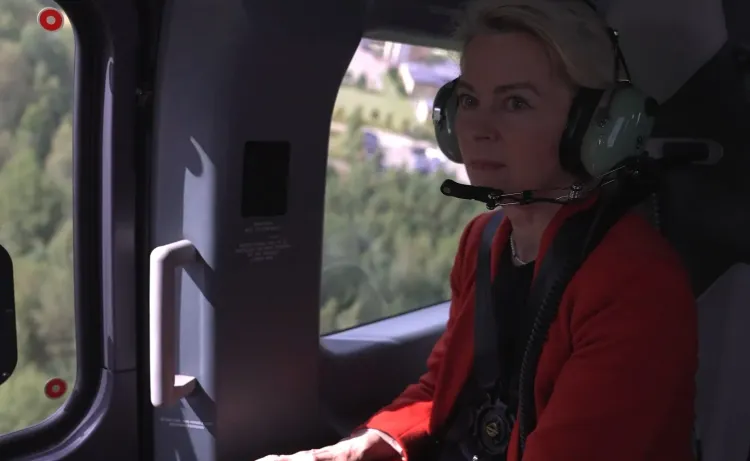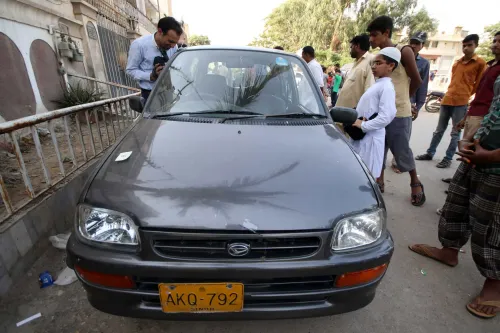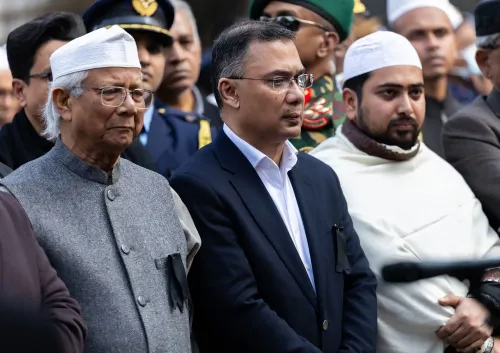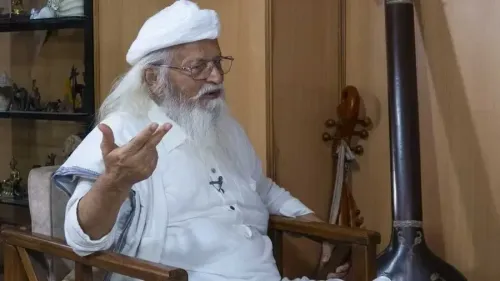Is Russia Jamming the EU Chief's Plane During Bulgaria Visit?

Synopsis
Key Takeaways
- GPS jamming incident involving EU Commission President Ursula von der Leyen's flight.
- Suspected Russian interference reported by Bulgarian authorities.
- EU's commitment to bolster defense capabilities in response.
- Visit aimed at promoting the EU's €800 billion defense spending plan.
- Highlighting ongoing tensions between Russia and the EU.
Brussels, Sep 1 (NationPress) The European Commission announced on Monday that Russia is under suspicion for jamming the GPS signal of the aircraft transporting European Commission President Ursula von der Leyen during her trip to Bulgaria. The EU Commission spokesperson confirmed GPS jamming and stated they received reports from Bulgarian officials suggesting that this incident may have been caused by Russian interference.
The spokesperson commented, "We can confirm the occurrence of GPS jamming; however, the plane made a safe landing in Bulgaria. Bulgarian authorities have indicated that they suspect this act was due to Russia's blatant interference."
"We are accustomed to the threats and intimidation that are inherent in Russia's hostile actions. This incident will only strengthen our unwavering commitment to enhance our defense capabilities and support Ukraine," the spokesperson continued, as reported by Euro News.
Ursula von der Leyen was on a chartered flight, as EU leaders do not have dedicated official aircraft. The spokesperson emphasized that there were no alterations to the pre-planned route of the European Commission President.
Her visit to Bulgaria was part of a broader tour to member states bordering Russia and Belarus, aimed at expressing solidarity and promoting the European Union's €800 billion initiative to increase defense spending.
On Monday, the EU chief journeyed alongside Lithuanian President Gitanas Nauseda over the Lithuania–Belarus border.
While addressing Bulgarian PM Rosen Zhelyazkov, Ursula von der Leyen stated, "We must maintain a sense of urgency."
Russia has frequently been accused of jamming and spoofing GPS systems throughout Eastern Europe, as reported by Euro News. This action is perceived as a form of hybrid warfare initiated by Russia in retaliation for European support for Ukraine amid the ongoing conflict.
This incident occurred shortly after a Russian strike damaged an EU delegation building in Kyiv. At that time, the EU chief posted on X, "Another night of Russia’s relentless bombings struck civilian infrastructure and caused innocent casualties. It also impacted our EU Delegation in Kyiv. Our Delegation staff is safe. Russia must halt its indiscriminate attacks on civilian infrastructure immediately and engage in negotiations for a just and lasting peace."










